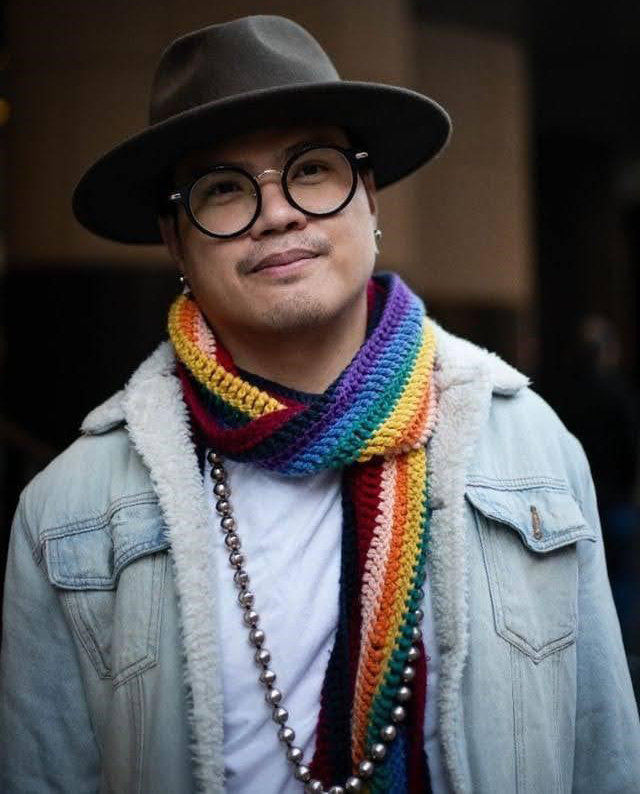As a carer for his older brother with disabilities, Willy Bagatcholon wanted to start the discussion into the cross-intersectional relationships forming between clinicians’ objective perspective and consumer representatives’ subjective lived experiences into mainstream media. And why Translational Research is paramount to him as a carer for his older brother with schizophrenia. Willy explains below.
My brother Wilson, 44 years of age was diagnosed with mental health disorders in his early to mid 20s. However, he began displaying symptoms from the age of 18 – 19 years old after he was racially attacked at a high school. It was a disconsolate time for my family and I can not imagine how incredibly difficult that would have been for my brother to go through without any medical contravention. His official diagnosis was not made until about five years into his mental health breakdown. This was because of our cultural beliefs and linguistic barriers when accessing health services at that time. While the school didn’t help.
In 2019 during a long, arduous legal battle with my former employer, I began exploring health advocacy when I came across the concept of Translational Research through my involvement with Western Sydney Local Health District (WSLHD) Consumer Council. I have been a member of the Health Council since 2017 as a Human Rights Advocate for People with Disabilities (PwD). It was a particularly interesting time for me to explore this subject during the global pandemic Covid-19. Covid had not just impacted people around the world but also the health and well-being of People with Disabilities (PwD), families and their carers. At that time Translational Research for me was about bridging the gap of linguistic barriers for immigrant individuals and or families who had and needed access to health services. However, as I grow to understand Translational Research, it goes much further because it cultivates a collaboration of objective and subjective realities.
Let me explain further what Translational Research means for me as a consumer representative for Sydney Health Partners governance under the subcommittee Consumer Advisory Panel (CAP). The board aims to reflect on consumer perspectives from their lived experiences, ensuring it values the different and unique perspectives of diverse communities. So for me it’s really about bringing together clinicians and consumers to the table. To a safe space for an open dialogue.
An excerpt from the book Homo Deus a Brief History of Tomorrow by Yuval Noah Harari in section The Web of Meaning page 167 – 168 in paragraph 1-3 as an example, quote:
“people find it difficult to understand the idea of ‘imagined orders’ because they assume that there are only two types of realities: objective realities and subjective realities. In objective reality, things exist independently of our beliefs and feelings. Gravity, for example, is an objective reality. It existed long before Newton, and it affects people who don’t believe in it just as much as it affects those who do”. Furthermore, quote:
“Subjective reality, in contrast, depends on my personal beliefs and feelings. Thus, suppose I feel a sharp pain in my head and go to the doctor. The doctor checks me thoroughly, but finds nothing wrong. So she sends me for a blood test, urine test, DNA test, X-ray, electrocardiogram, fMRI scan and a plethora of other procedures. When the results come in she announces that I am perfectly healthy, and I can go home. Yet I still feel a sharp pain in my head.”
However, what brings these two realities together is the third reality of “intersubjective realities” as Yuval Noah Harari also talks about in his book on page 168. With my lived experiences I surmise that it means it’s an amalgamation of the two realities that factors opposite perspectives bridging the gap between them. And this is where for me, as a carer for my older brother with disabilities, Translational Research is important. It creates the right atmosphere to explore both objective and subjective experiences. A kind of space that allows connection between clinicians and consumer representatives.
Often being a carer for my older brother with mental health barriers isn’t easy to share with anyone outside our family dynamic. In addition, my struggles with my own health and well-being compounded with accessing services through the health care systems can be difficult. Translational Research for me is about bench to bedside application of research in context of when accessing information and using health services. With the rapid growth of AI tech and data collection it is personally imperative that data collected to feed AI represents diverse backgrounds. That it’s reflective of our socio-economic population. Our diverse communities and those who are accessing health services who are people from culturally and linguistically diverse (CaLD) backgrounds are included. Otherwise, data collected will likely be an inaccurate representation of the Australian population in particular our Local Health District (LHD).
Imagine a teenage girl with disabilities who experienced pains differently to how a young boy does. And how that data collected for AI development is reflective of this scenario can have a huge influence on how health services is offered, accessed, and used by young people.
The purpose to why I am sharing my story is about raising awareness on diverse consumer representatives’ involvement with Translational Research. To ensure voices that are heard are representative of the Australian population across LHD, in particular, my personal passion areas on issues such as mental health, LGBTIQ+ communities and how climate change can impact our health systems. I want to encourage people to share their lived experiences by participating in board room discussions because that’s were policies are often influenced and developed for future generations.
Go to the link in my bio and click on Governance – Sydney Health Partners to read more about Translational Research:

By Willy Bagatcholon
https://linktr.ee/Smallstonecreatives
https://linktr.ee/Willy.bagatcholon






